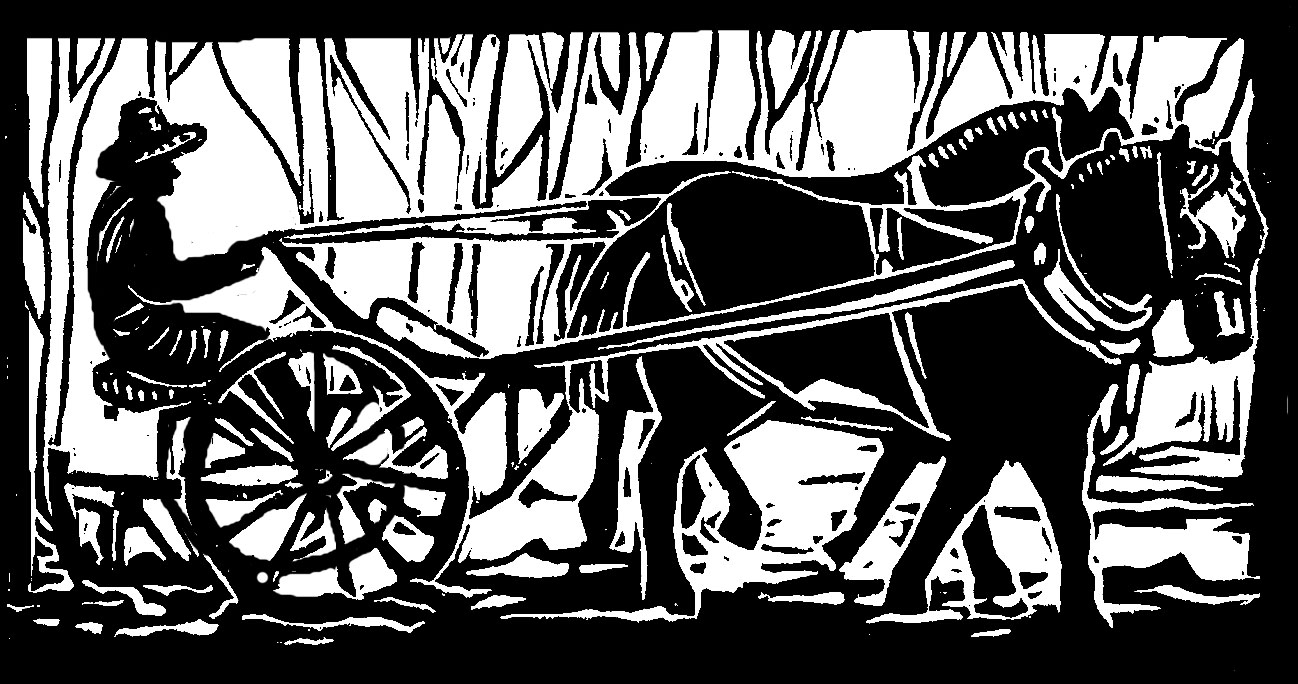Our four work horses have had a tumultuous season. When three out of four couldn’t work, from age or injury, we borrowed a horse from our farrier. Introducing a new horse to a herd is always a tricky business.
We started with the new mare, Button, and our horse, Clyde, as they would be the working team for a while. They got along nicely. Meanwhile Molly, Moon, and Ben were in our neighbors’ pasture, where they always spend part of the grazing season. When Molly recovered from her lameness, we brought the three back home.
It was a beautiful sight: five big draft horses, one black, one red, two gold, and one cream, all galloping around on the green green grass. Great! we said, until the next morning, when Moon got out, all by himself, and went back to the neighbors.’
We fetched Moon home, thinking he had just gotten tangled up somehow. But it turned out that Moon was sore afraid of Clyde, because Clyde had decided that with two mares around, it was time to be a serious boss hoss, and he chased Moon and Ben away aggressively.
Ben is all right with some distance, but Moon grew up with Molly, and he wants to be next to her at all times. Clyde would no longer tolerate this. Thus we had a new configuration: the main herd (of three), and a new bachelor herd (of two), just like in the wild. Okay, we thought, that’s fine.
The next escape was an hour later: Moon and Ben got out and went to the neighbors.’ We gave up, and left them there, thinking these horses had a lot more time to get out than we had to get them back in. Occasionally there was some neighing back and forth, but for the most part all was calm.
After nearly two months, when we finally had our hay and garden work done, we took Button home. We brought Moon and Ben back into the fold, thinking there would be no problem. Ha!
Clyde still chased Moon and Ben away, a long way away. The two pairs of horses had lots of room in our big pasture, but we were beginning to wonder what we would do when it was time to bring them all into the smaller winter paddock.
By November, trying to hold off on the paddock, we were setting out hay in the pasture. But when the snow came, Molly and Clyde walked past the hay, and went on a jaunt to the neighbors.’
“For crying out loud,” we groaned. All right, now Molly and Clyde could stay at the neighbors.’ But in fifteen minutes, they had gotten out of the neighbors’ pasture and come home again. This was also the day before Thanksgiving, and we had planned to visit family. These horses were not helping. We ended up taking all four of them back to the neighbors’ pasture, along with two mangers of hay.
Happily, everything went fine while we were away. When we got home, we wanted to bring our horses home too, where all the hay and water was. So we split our winter paddock, with a classy arrangement of metal gates and a wooden pallet, because the gates weren’t quite long enough.
We fed the two horse pairs at opposite ends of the paddock. Gradually, we planned, over some weeks, we would bring them closer and closer together, and maybe they would all remember how to get along.
But the funny thing was, all four horses already remembered. On day two, they were calmly eating near each other, next to the gate divider. By day four, we opened up the gates. By day six, we took the gates down entirely.
“What’s the big deal?” the horses seemed to say. “This is how we always spend the winter.”
Huh. Well. We humans might have saved ourselves some trouble, if we had a little more horse sense.
Originally published in the Monadnock Shopper News, Dec 13 - Dec 19, 2023
